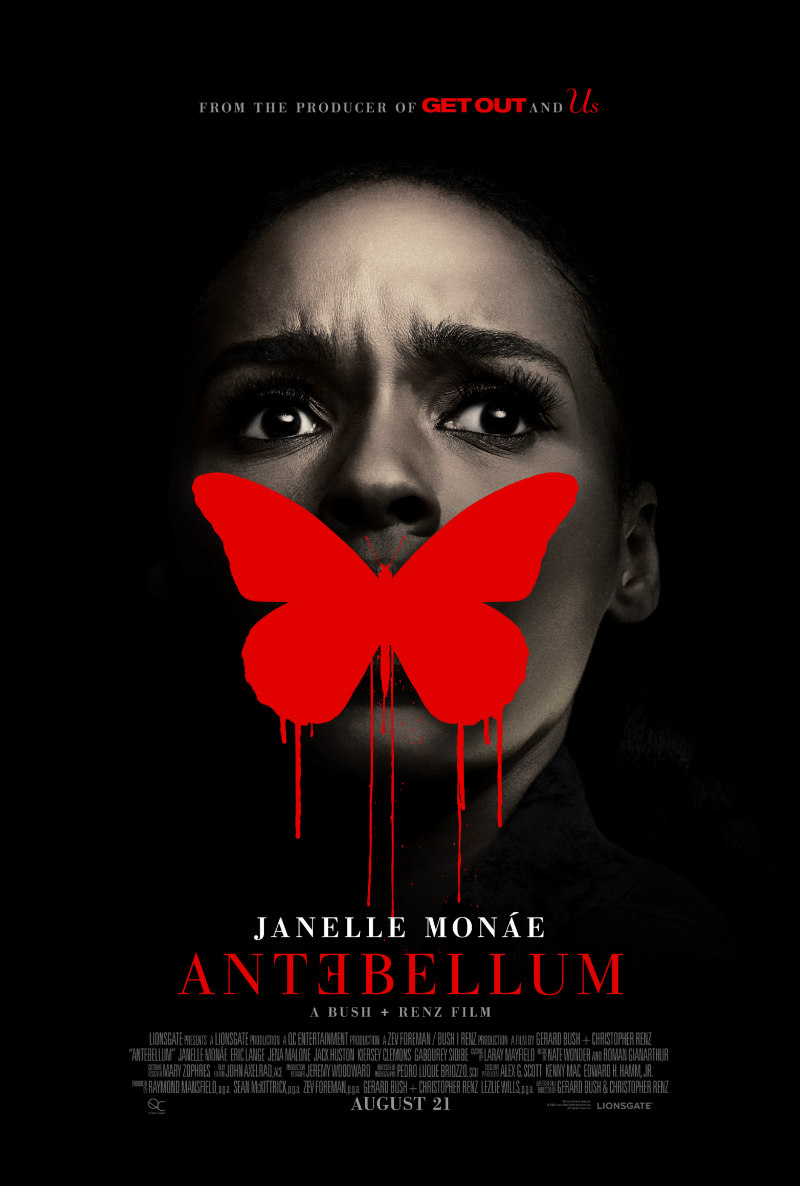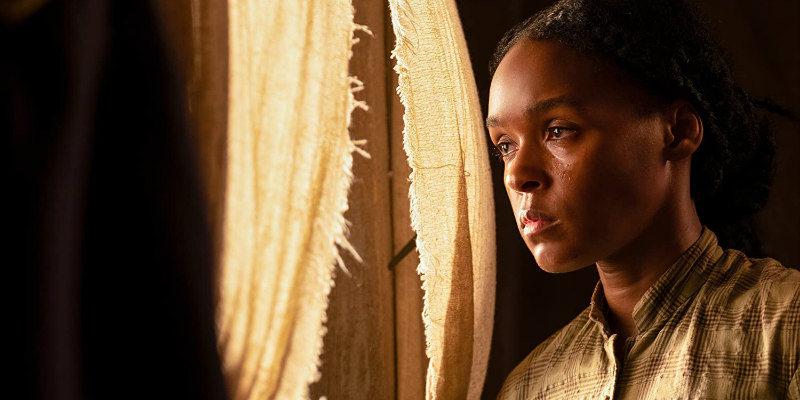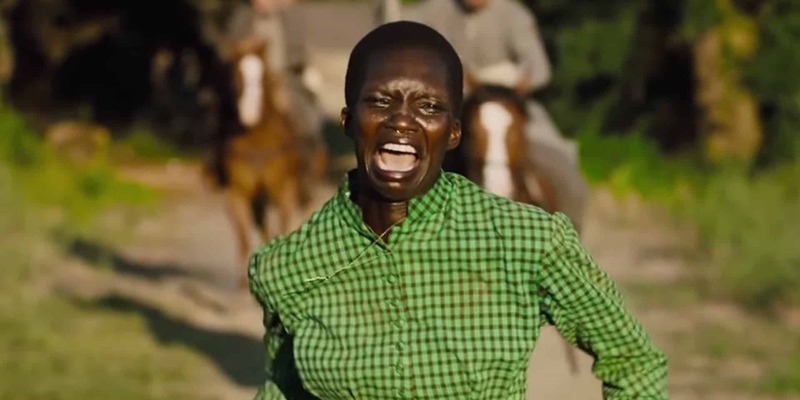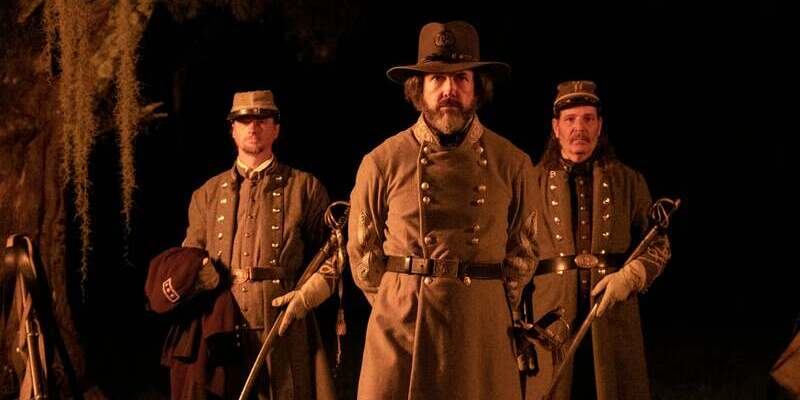
Review by
Eric Hillis
Directed by: Gerard Bush, Christopher Renz
Starring: Janelle Monáe, Eric Lange, Jena Malone, Jack Huston, Kiersey Clemons,
Gabourey Sidibe

Warning: Due to its structure, there's no way to review
Antebellum without discussing what may be considered as
'spoilers'. If you don't want to know anything about
Antebellum, come back after you've watched the movie.
Ever since their inception in Weimar Germany, horror movies have been
political. Filmmakers around the world have used the genre to comment on
social and political injustices and inequalities through subtext.
Recently however, mainstream American horror movies have been pushing
their politics to the forefront, assuming the audience is too dumb to
pick up on subtext. The result is movies that come off as lectures
thinly wrapped in genre clingfilm. The most egregious example of this so
far is directors Gerard Bush and Christopher Renz's
woefully misguided Antebellum, which combines the real life horrors of slavery with grindhouse
thrills in the most knuckle-headed fashion imaginable.

For its first 40 minutes, Antebellum plays like a poor
man's 12 Years a Slave, graphically detailing the horrors visited upon the slaves of a
Southern plantation. We witness women murdered, their bodies later burnt
without ceremony in a small crematorium, and our protagonist, Eden (Janelle Monaé), raped nightly and branded with a hot iron by a Confederate General.
It's arguably the most gruelling depiction of this chapter of American
history since Jacopetti and Prosperi's controversial 1971 docudrama
Goodbye Uncle Tom. But something seems off. At one point a Confederate guard requests
the slave to sing "one of those old Negro songs." Old???
And then at that 40 minute mark the rug is pulled out from under us as
Eden is woken by the alarm of a cellphone. She's now Veronica, a
prominent sociology scholar who lives in modern day America. After a
creepily intrusive skype call with a white woman (Jena Malone)
whom we had earlier observed in the plantation segment, Veronica jets
off to New Orleans to attend a conference, where she finds herself at
the centre of a sinister plot.

I hated Antebellum, but I found myself interrogating just why it rubbed me the wrong way.
If this had been made in the '70s and starred Pam Grier, I probably
would have loved it. So why did I find it so obnoxious? The conclusion
I've come to is that Antebellum is an exploitation movie
that refuses to admit it's an exploitation movie. In its climax it takes
a swipe at the idea of Civil War re-enactment theme parks that repurpose
a dark era of history for entertainment, but isn't this exactly what the
film is doing itself?
What really sinks Antebellum is that opening 40 minutes.
Once you've shown us real life horrors, you can't expect us to settle
back into fictional horror. The effect of Antebellum is
like watching the first half of Schindler's List followed
by the second half of Ilsa, She-Wolf of the SS. In the final act the film wants us to pump our fists and yell "Go
girl!!!" as Eden/Veronica exacts her revenge, but we're on such a downer
that we're simply not in the mood for the transition to genre thrills.
Nobody wants to eat a McRib after visiting a slaughterhouse.

Structuring the film this way also makes the entire middle segment of
Antebellum largely redundant. We know where the plot is
headed, so what's the point in making us sit through another 40 minutes
or so of setup that could have been communicated to us through a quick
flashback? The final twist might have had some impact had it arrived
immediately after the opening plantation segment if
Antebellum were an episode of a
Twilight Zone style anthology show, but it's telegraphed
so much over the feature length running time that it just doesn't land
here. It also doesn't make any sense – if Eden/Veronica and the other
Black slaves are being held in a theme park that's open to the public,
how did none of the guests ever stumble across them?
After all of its performative political prodding,
Antebellum chickens out in its denouement, as the FBI
arrive to the rescue. If the movie was as daring as it believes itself
to be, wouldn't it have ended George A. Romero style, with our Black
heroine being killed by the Feds when they arrive guns blazing?


